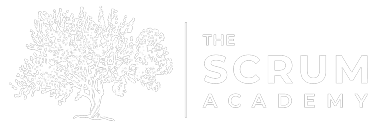What Are You Afraid of at Work?
In Scrum, one of the core values is Courage – strength in the face of adversity. In my consulting work, I often find that a lack of courage is what holds many organizations back from adopting Scrum and delivering phenomenal outcomes. So what does fear look like in the workplace? Generally, it is self-censorship and silence. Think about the last time you decided not to share your true opinion with a colleague at work? Or held back discussing a significant disagreement with your boss? In either situation, if you took the path of least resistance or just agreed to whatever foolishness that was presented to you because it was easier than challenging it, than perhaps your decision was motivated by some fear type of fear. So I ask, what are you so afraid of at work?
Last week some participants in my Certified ScrumMaster (CSM) class in Madrid were remarking that while they understood the concepts of Scrum, they would not be able to use Scrum on their projects because they could not change anything about the project or their environment. While many participants felt Scrum would help their current work, they felt the client would never agree to change their way of working. Or gerencia (“management” in Spanish) would not support Scrum the changes necessary to implement Scrum well. So rather than bring up the topic of how we can better serve the client or make a greater contribution at work in the office, most participants only felt safe enough to identify the concern in an off-site classroom away from the clients and out of earshot of the bosses. How very sad and how very common!
It has been a long time since I worked in a formal office setting, but here are some common reasons why I remember being afraid at work.
-
- I’ll lose my job: this is the big fear that stops many people from sharing what they really think. It is also who holds back most organizations from real breakthroughs in productivity and creativity. As someone who has been fired from a job a long time ago, if you get fired for being true and authentic to yourself and your opinions, then the job you had was not that good to begin with. Sure it might have paid well or makes your car payment or was close to home, but if each day you have to do things you don’t believe in then that just leads to oblivion and cynicism. That is just a bad path to go down and diminishes your soul. There is a good way and a bad way to share your opinions at work (think Crucial Conversations). I encourage you to read the book or come to a ScrumMaster Plus course where we practice putting these skills into use.
“… maybe you’ve been fine all along and just hanging with the wrong crowd.” Kent Beck & Cynthia Andres
-
- I’ll screw up: you probably are going to screw up, so just accept that it is going to happen and move on. It is a fact, people who are doing new things for the first time tend to make mistakes, so get over it and Ask for Help. There is a reason why Ask for Help is part of the Core Protocols – it is hard to do and requires a great deal of courage. In addition, asking for help is skill that needs practice so use the protocol provide by Jim and Michelle McCarthy. I have also found that learning how to recover from mistakes is also a valuable skill to have. I recommend making lots of small mistakes so that when you do make a big mistake, you will know how to handle the situation gracefully and still work towards your goal.
“You’re not as good as you think, but you’re not as bad as you fear.” Ron Jeffries
-
- People won’t like me: as I have become more mature and confident in my own abilities, I have come to realize that I cannot control how other people respond to my behaviors. All I can do is be authentic, work hard so that my actions and words are congruent with one another and apologize when I unintentionally hurt a friend or colleague. When we expose our true thoughts, wishes and desires we are making ourselves vulnerable. Being vulnerable is scary especially if we are uncertain about the motivations of others around us. Unfortunately, the way to a deep sense of trust is through vulnerability and if we are never vulnerable with peers and colleagues our relationships at work, with our boss and our customers will only be superficial at best. Finally, how can another person really like us if we do not show our true thoughts and feelings? People do not need to agree with us or like our ideas, but they need to respect our contribution and give it fair consideration
“Authenticity is simply being honest with ourselves and being direct and honest with others.” Peter Block

